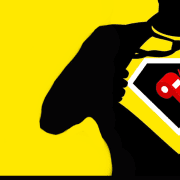|
Getting your Trinity Audio player ready...
|
African Anti-Corruption Day (AACD), held every year on 11 July, aims to recognise the progress that has been made in fighting corruption across the continent, and reiterate the need to move with the times in developing approaches to end corruption. It also provides an opportunity to reflect on the catastrophic consequences of corruption on the lives of ordinary African citizens across the continent, and to sustain the impetus needed to effectively tackle the scourge.
This year’s edition is the eighth and is commemorated under the theme Effective Whistle-blowers Protection Mechanism: A Critical Tool in the Fight Against Corruption.
Whistle-blowers protect us from corruption
The African Union (AU) established 11 July as AACD to commemorate the adoption, in the same month in 2003, of the AU Convention on Preventing and Combating Corruption (AUCPCC). To date, 48 AU states have ratified the convention, including South Africa in 2005. This means the country is obligated to abide by the provisions of the AUCPCC, which prescribes, in Article 5(5), the adoption of “legislative and other measures to protect informants and witnesses in corruption and related offences, including protection of their identities”. The very next sentence instructs members to “adopt measures that ensure citizens report instances of corruption without fear of consequent reprisals”.
This is not the case in many countries, including South Africa, and years of impunity for the corrupt and vicious retaliation against those who expose them has resulted in the deep and systemic entrenchment of corruption in the public and private sectors.
This is a regrettable situation, because extensive research has shown that a supportive and effective whistle-blower framework is a vital tool in the fight against corruption. The UN Office on Drugs and Crime, in a study conducted in 2015, stated that employee whistle-blowing was “the single most important way in which wrongdoing was brought to light in public sector organisations” (UNODC, 2015). The same applies to the private sector.
Where whistle-blowers feel confident of coming forward to expose corruption, they will do so, but in a hostile and repressive environment, they will keep that information to themselves and avoid the risk of putting themselves in harm’s way. Meanwhile, the corrupt will go about their nefarious business and ordinary residents will be the ones to suffer.
“Media is always awash with stories of whistle-blowers who are facing retaliation,” says the AU quite rightly, adding that AACD 2024 will “provide a platform to highlight the significance of whistle-blowing in the combating of corruption and also provide a space for stakeholders to reflect on the challenges, good practices, and recommendations to enhance whistle-blowing in African Union Member States”.
Whistle-blower protection
In South Africa, there is some forward momentum in addressing the dangers faced by whistle-blowers in the country. In June 2023 the Department of Justice and Constitutional Development published a discussion document on proposed reforms for the whistle-blower protection regime in South Africa.
These proposed changes followed the state capture commission’s recommendation, contained in its report released in 2022, that legislation on whistle-blowers be amended to provide increased protection. Chairperson Chief Justice Raymond Zondo said that government should take guidance from the UN Convention Against Corruption in seeking ways to enhance existing laws in this regard.
Responding in October 2022 to Zondo’s recommendation, President Cyril Ramaphosa said: “The commission identified whistle-blowing as an essential weapon in the fight against corruption. The actions of whistle-blowers have played a vital role in exposing many of the activities that were part of state capture. Whistle-blowers need to be encouraged to report instances of fraud and corruption and need to be protected from victimisation, prejudice, or harm,” he said.
Corruption Watch answered the call for comments on the justice department’s proposals, submitting that: “There needs to be a societal shift in the perception of whistle-blowing, so that it is framed in such a way that it is correctly understood as a noble civic duty and not an act of betrayal. This will ensure whistle-blower safety and create a more positive culture around whistle-blowing.
“The legislative regime put in place to facilitate protected disclosures and protect whistle-blowers has a direct bearing on the protection, promotion, and fulfilment of constitutional rights, and the compliance with South Africa’s international human rights obligations.”
With the 2024 general elections behind us and a new administration and new justice minister recently installed, it is important that civil society follows up on developments in this regard, making certain that the proposed improvements are not neglected in the upheaval of bringing a new government and Parliament into being. In so doing, we will ensure that those who protect us from corruption, are themselves protected.







